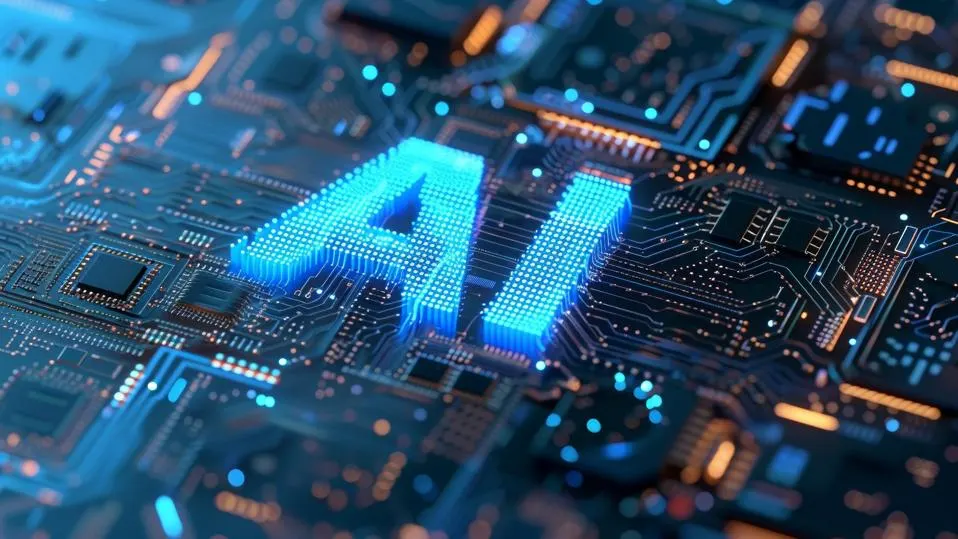How to Become Indispensable in the Era of AI

As artificial intelligence progresses at breakneck speed, many people find themselves questioning: Will AI take over our jobs? Will it captivate the next generation? Could it even diminish our essence as human beings? These critical concerns define our era and are central to Pascal Bornet’s compelling book, Irreplaceable: The Art of Standing Out in the Age of Artificial Intelligence.
I recently had the opportunity to discuss Bornet’s book with him, gaining valuable insights on how to succeed in a world increasingly influenced by AI. His outlook is both illuminating and comforting: when utilized appropriately, AI can enhance our humanity and increase our value in professional environments.
The Human-Centered Approach to AI
“AI fundamentally revolves around humans,” Bornet stated during our conversation. “Without humans, there would be no AI, and every AI we develop should serve human needs; otherwise, it serves no purpose.”
This human-centered approach forms the basis of Bornet’s strategy for becoming indispensable. He outlines three essential skills we must cultivate: being AI-ready, human-ready, and change-ready.
Fostering AI Literacy
Being AI-ready extends beyond merely knowing how to operate the latest AI technologies. It involves cultivating “AI literacy”—the ability to stay informed about AI developments, comprehend their implications for our careers, and critically assess their advantages and drawbacks. It’s also essential to learn to apply AI responsibly and effectively, enhancing our skills rather than replacing them.
“We must bridge the gap between AI and humans,” Bornet stressed. “The future doesn’t lie in AI and humans existing in isolation. Our path forward requires us to augment ourselves.”
Embracing Our Humanity
The concept of being human-ready is arguably the most vital yet counterintuitive element of thriving alongside AI. As machines take over tasks once deemed exclusively human, we must focus on honing the abilities that differentiate us. Bornet refers to these as the “Humics”: true creativity, critical thinking, and social authenticity.
“The greater the disparity between our skills and AI’s capabilities, the more value we can create with AI and the more synergy we can foster,” Bornet explained. By nurturing these distinctly human characteristics, we foster a partnership with AI that enables us to produce more value together than either could achieve independently.
Adjusting to Rapid Change
Being change-ready involves cultivating resilience and adaptability in an ever-evolving landscape. As Bornet noted, “In the next decade, we will witness as many innovations as we have seen in the last hundred years.” This demands a new level of mental agility and a commitment to lifelong learning.
The Threat of AI Dependency
One of the more fascinating ideas Bornet introduced is “AI dependency.” Just as overindulgence in fast food can lead to physical obesity, an over-reliance on AI can lead to mental stagnation. The concern isn’t that AI will usurp our uniquely human traits but that we might allow those traits to fade by settling for AI’s superficial solutions.
“The real danger is not AI taking over our Humics, but us becoming complacent with AI’s superficial offerings, neglecting our Humics, and allowing them to deteriorate, much like an unused muscle… ultimately losing our humanity to AI!” Bornet cautioned.
Enhancing Our Humics
To fight against AI dependency and become truly indispensable, Bornet advises setting aside time daily for activities that strengthen our Humics. This might include creative pursuits, engaging in critical thinking exercises, or fostering authentic relationships. The objective is to elevate these human skills to a level that AI cannot replicate.
Businesses in the AI Era
For organizations, becoming irreplaceable in the age of AI follows a similar paradigm. Companies must harness AI’s full potential while emphasizing the human element. Bornet observed, “As AI becomes commonplace, the human touch is becoming increasingly valuable. Companies that can harness this will emerge as leaders.”
This entails not only adopting AI technologies but also rethinking roles and processes to optimize human-AI collaboration. Furthermore, it requires building trust—with employees, partners, and clients—by being transparent about AI applications and addressing ethical concerns proactively.
Preparing Future Generations
For parents and educators, equipping the next generation to be indispensable involves rethinking educational approaches. Instead of prohibiting AI in schools, we should teach children how to collaborate effectively and ethically with it. Concurrently, we need to focus on cultivating their creativity, critical thinking, and emotional intelligence—skills that will distinguish them in an AI-centric world.
Navigating the Future
As we venture into this new AI era, success lies not in competing with machines but in amplifying what makes us uniquely human. By enhancing our AI literacy, nurturing our Humics, and embracing adaptability, we can position ourselves to thrive alongside AI rather than be sidelined by it.
As Bornet insightfully noted, “AI is not the end goal; it’s the means that guides us to a more human future.” By adopting this viewpoint and taking proactive measures to become irreplaceable, we can ensure that the AI revolution enhances rather than diminishes our humanity.
Ultimately, achieving irreplaceability in the age of AI isn’t about outshining machines in their own domain. It’s about excelling at being human—embracing creativity, critical thought, and genuine connection. As we continue to explore the possibilities of AI, let’s also strive to expand the limits of our own human potential.